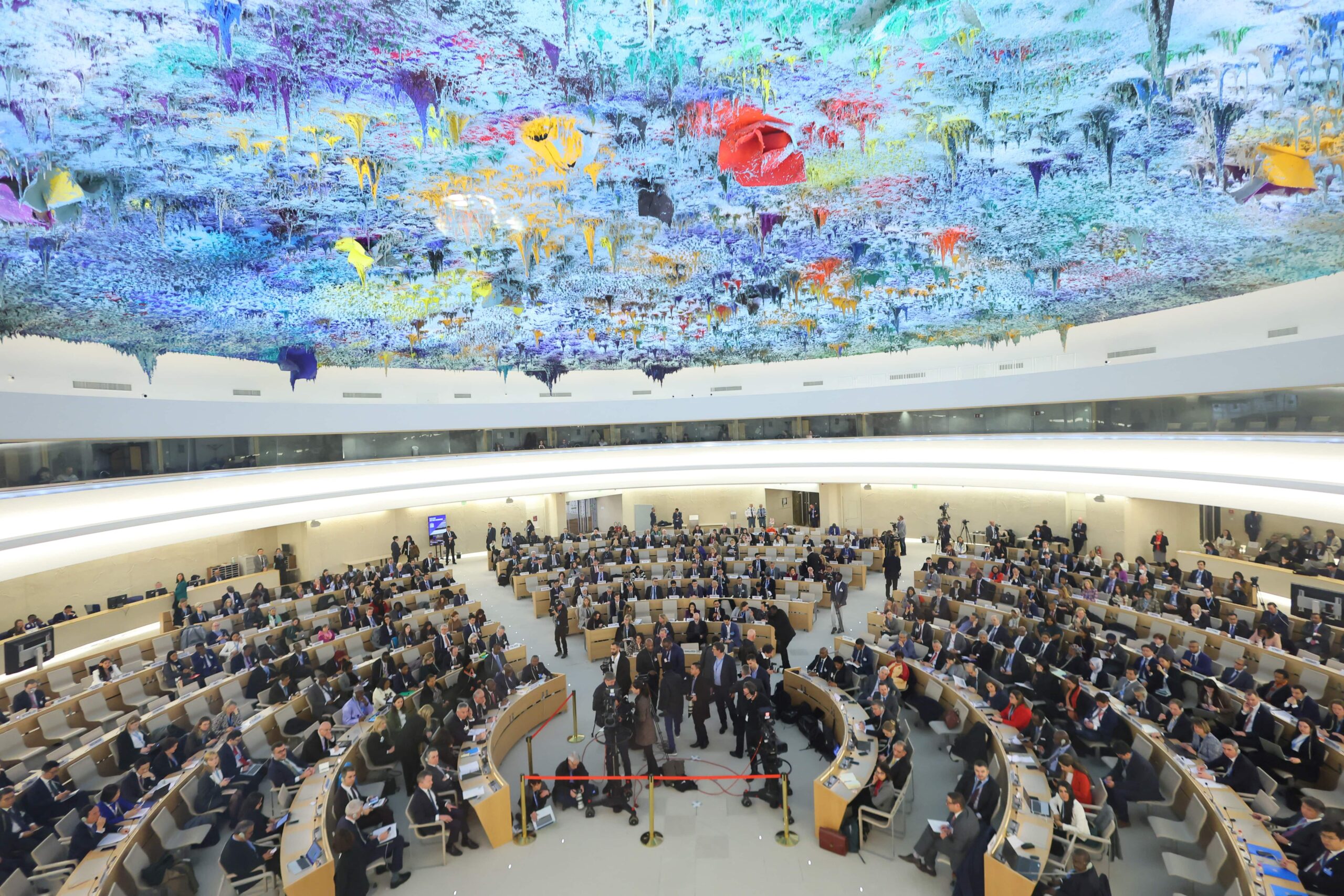Incremental resolutions at the UN are starting to make the right to healthy environment tangible, but are running into pushback from states like the US.
The UN Human Rights Council has encouraged governments to adopt policies and an effective legal framework to implement the right to a healthy environment, a resolution that sparked tensions between proponent countries and the US.
The resolution passed today, led by Costa Rica, the Maldives, Morocco, Slovenia, and Switzerland, reaffirms the human right to a clean, healthy and sustainable environment and called on states to protect environmental defenders trying to uphold it. It also calls on UN treaty bodies to promote its implementation.
John Knox, professor of international law at Wake Forest University School of Law and the UN’s former special rapporteur on human rights and the environment, said it marks a turning point from recognising the right “to actually starting to take steps to implement it”.
“It identifies concrete steps to make this right a reality, beginning with protecting environmental defenders and communities facing the deadly impacts of the ongoing triple planetary crisis,” agreed Sébastien Duyck, human rights and climate campaign manager at the Center for International Environmental Law.
The US had been expected to withdraw its support for the resolution at the last hurdle and to call on others to join it, which would have resulted in a vote. However, it changed its mind following late-night negotiations.
Duyck said the US likely realised that isolating itself on “such an important resolution” would be diplomatically and publicly untenable. “Perhaps they had underestimated previously the resolve of other states but also civil society to see progress on the issue.”
Disassociating from consensus
In a statement to the council today, US ambassador Michèle Taylor, said her nation had “long recognised” the relationship between human rights and environmental protection and continued to support development of a right to a clean, healthy, and sustainable environment “in a manner that is consistent with international law”.
But she said it would “disassociate from consensus” on the subject because it has “significant concerns” about the resolution getting “ahead of the proper development of such a right”.
The Human Rights Council, made up of 47 member states elected by the General Assembly, has long acknowledged a link between climate change and human rights, with frontline nations carefully building a broad coalition of support on the subject.
The US is currently a member, but has not always been and has accused the institution of bias on a number of previous occasions.
In 2017, it agreed to support a resolution calling for the protection of human rights from the impacts of climate change following intensive but constructive negotiations over the wording led by Bangladesh, the Philippines and Vietnam.
Four years later the council recognised access to a healthy and sustainable environment as a universal right, followed in July 2022 by a similar landmark resolution by the whole UN General Assembly.
The US was one of several states – alongside the UK – to initially oppose this. But, unlike China, India, Japan and Russia all of which abstained, it ultimately supported the decision – a move described by academics as a “striking exception” to its long-standing resistance to recognise ‘new’ human rights.
However, the US caveated its approval by stating that there is “no legal relationship between a right as recognised under this resolution and existing international law” and said it “does not recognise any change in the current state of conventional or customary international law”.
Last week, the US also joined the whole UN in asking the International Court of Justice to advise on states’ legal obligations to tackle climate change.
But US delegate Nicholas Hill warned the general assembly that “launching a judicial process, especially given the broad scope of the questions, will likely accentuate disagreements and not be conducive to advancing our ongoing diplomatic and other processes”.
‘No legal relationship’
In its latest statement to the Human Rights Council, the US appeared to be trying to head off any suggestion of legal obligations at all.
“Unless and until there is a transparent process through which governments have consented to be bound by such a right, a right to a clean, healthy, and sustainable environment has not yet been established as a matter of customary international law,” said Taylor.
She added that treaty law “does not yet
Read More







Never miss a story. Join us on social.